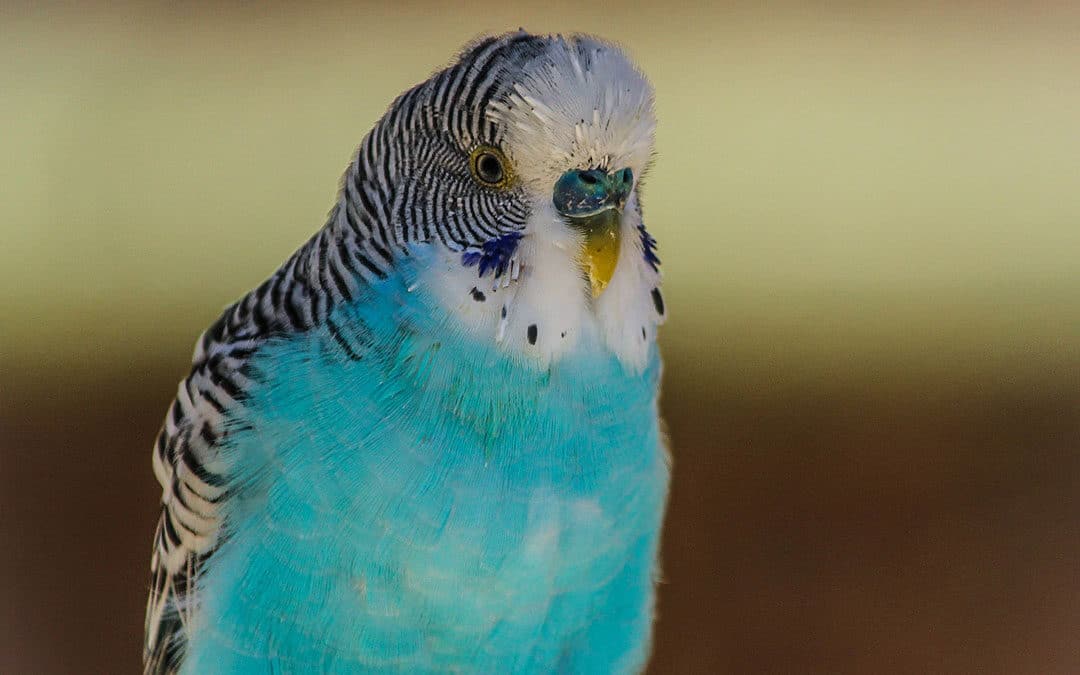Budgies are relatively hardy birds and are not prone to many serious health problems, but like all birds, they can be affected by certain diseases.
Some of the most common diseases in budgies include:
Respiratory infections
Budgies are susceptible to respiratory infections, such as pneumonia, caused by bacteria or viruses. These infections can be caused by poor living conditions, such as overcrowding or poor ventilation. Symptoms of respiratory infections include sneezing, nasal discharge, and difficulty breathing.
Psittacosis
Psittacosis is a bacterial infection that can affect budgies and other parrots. This disease is caused by a bacterium called Chlamydia psittaci, and it can be transmitted to humans. Symptoms of psittacosis include lethargy, loss of appetite, and difficulty breathing.
Feather-plucking
Feather-plucking is a common behavioral disorder in budgies. This condition can be caused by a variety of factors, including stress, boredom, and poor nutrition. It is important to identify and address the underlying cause of feather-plucking to prevent further feather loss and feather-plucking.
Vitamin A Deficiency
Vitamin A is an essential nutrient for budgies, and a deficiency can lead to a variety of health problems. Symptoms of vitamin A deficiency include dry, scaly skin, a dull, dry appearance to the feathers, and eye infections.
Budgie with a diet that includes fresh fruits and vegetables, such as carrots, spinach, and sweet potato, can help prevent vitamin A deficiency.
Bacterial infections
Budgies can also develop bacterial infections, such as E. coli or Salmonella. These infections can be caused by poor hygiene, contaminated food or water, or a weakened immune system.
Symptoms of bacterial infections include diarrhea, vomiting, and weight loss.
Parasitic infections
Budgies can also be affected by parasitic infections, such as mites, lice, or roundworms. These infections can be caused by poor hygiene or a weakened immune system. Symptoms of parasitic infections include itching, feather loss, and weight loss.
Beak and feather disease
Beak and feather disease is a viral infection that affects budgies and other parrots. It is caused by the Psittacine Beak and Feather Disease Virus (PBFDV) and it can lead to the loss of feathers and deformities of the beak and claws.
Prevention and management
It’s important to keep in mind that early detection and treatment of these diseases can improve the chances of recovery.
Regular visits to a veterinarian who has experience with birds and monitoring your bird’s health can help to identify and address any health problems as soon as possible.
In addition to regular veterinarian check-ups, there are also steps that you can take at home to prevent and manage common diseases in budgies.
– Provide a healthy diet: A balanced diet that includes a variety of fruits and vegetables, as well as a high-quality pellet or seed mix, can help to prevent nutritional deficiencies and maintain a healthy immune system.
– Maintain good hygiene: Keep your budgie’s cage and environment clean, and make sure to wash your hands before and after handling your bird to prevent the spread of disease.
– Provide a comfortable and stimulating environment: Budgies need plenty of space to fly and play, and they also need access to perches, toys, and other items to keep them mentally and physically stimulated.
– Minimize stress: Stress can weaken a budgie’s immune system and make it more susceptible to disease. Providing a comfortable and stimulating environment, as well as minimizing changes in the bird’s routine, can help to keep stress levels low.
– Avoid overcrowding: Overcrowding can lead to poor air quality and an increased risk of disease. Make sure to provide enough space for your budgies to move around and fly.
Overall, budgies can be hardy and healthy pets with proper care and attention. By monitoring their health and providing them with a good diet, comfortable environment and regular veterinary check-ups you can help prevent and manage common diseases in budgies.
It’s important to note that providing your budgie with proper care, attention and taking them to regular check-ups with an avian veterinarian is the best way to ensure that they stay healthy and happy.
If you suspect your budgie is showing symptoms of any of these diseases, it’s crucial to seek veterinary attention as soon as possible to ensure the best chance of recovery.
By understanding the common diseases that budgies can be susceptible to, you can take steps to prevent them and provide your feathered friend with the best care possible. With the right care, your budgie can live a long and healthy life.
Conclusion
Budgies are intelligent and social birds that can make great pets. However, like all birds, they can be affected by certain diseases. By understanding the common diseases that budgies can be susceptible to, you can take steps to prevent them and provide your feathered friend with the best care possible.
Regular visits to a veterinarian who has experience with birds and monitoring your bird’s health can help to identify and address any health problems as soon as possible, preventing more serious conditions and improving the chances of recovery.
It’s important to keep in mind that early detection and treatment of these diseases can improve the chances of recovery. Additionally, providing a healthy diet, comfortable environment, minimize stress, maintain good hygiene and avoid overcrowding can help prevent and manage common diseases in budgies.
With the right care, your budgie can live a long and healthy life. Remember to always seek veterinary attention if you suspect your budgie is showing symptoms of any disease, as early treatment increases the chances of recovery.




